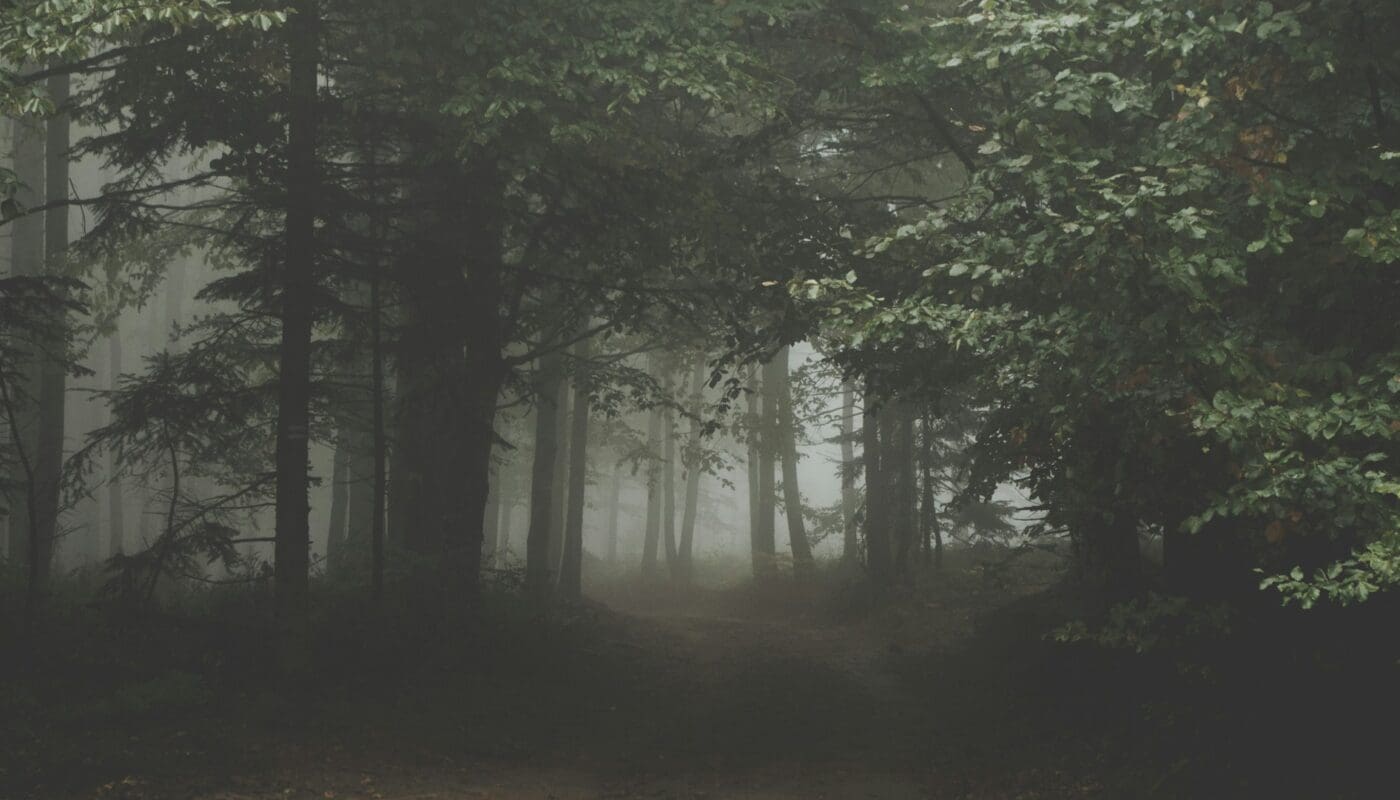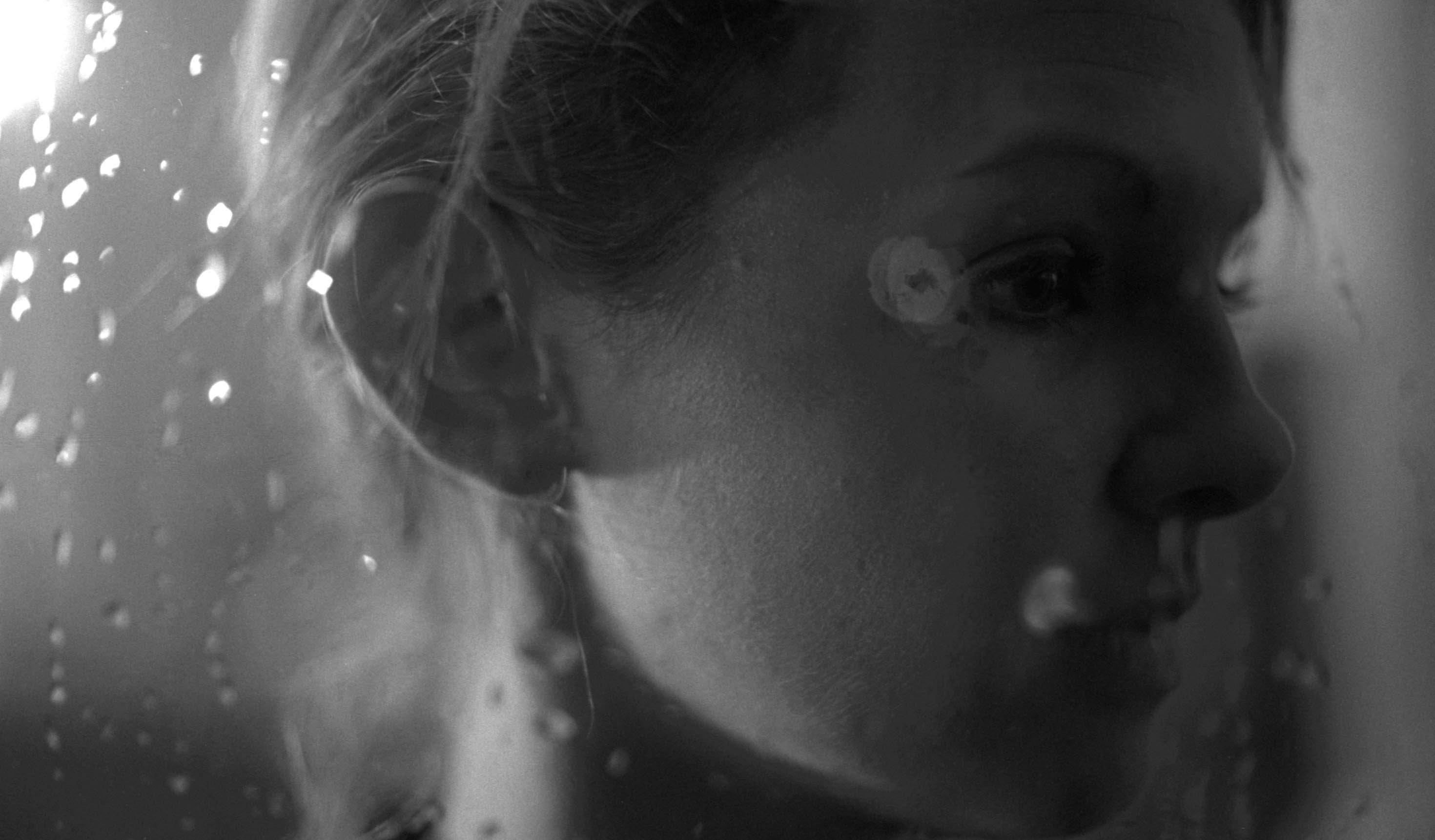You were a girl newly turned fifteen. Your family celebrated with a special meal and the gift of a new dress. You were becoming a woman. The world was opening up so you could find your place within it. They teased that you’d have a husband soon, and a home of your own to fill with children. Everyone wanted a big family, but nature had a way of taking the younger ones away.
No one suffered more than your Aunt Mabel, your mother’s sister, whose three children died before the age of four. After the last one was buried, her husband told her not to bother coming home. Whispers abounded. She came to live with you, and your mother and father and younger siblings.
You loved your Aunt Mabel. She told you about all the things no one else bothered to explain. You don’t know what you would have done without her when you bled the night before your birthday. Something in you knew to go find her. The moon was so full, you didn’t need the candle’s light. She was awake when you kneeled next to her cot in the small room behind the kitchen. A feeling, a premonition.
“Did you get anything on the bed?” she asked, and you nodded.
She gave you water to clean yourself with and a cloth to put between your legs. You waited while she went to strip the bed. No one needed to know just yet.
“Wait until that blonde boy down the road is married.”
“But, I’m already late.” All the other girls already had theirs.
“Look at his mother,” she said, ending your protests. “She walks around black and blue.”
Mabel brewed the raspberry leaves and you marvelled at how the tea drove away the ache. She smiled and winked before sending you back to bed with a hug and a promise.
“You’re coming into your power.”
The thought snaked up your spine as the truth of her words settled into your bones. It felt the same as when the earth beckoned for your bare feet on early morning walks—the way you slipped them out and the ground held you to it, safe and loved. It was the stirring you felt in your chest whenever the birds sang their afternoon songs—the way their calls reached deep inside of you. It was the small doe you always crossed on your way to pick berries—the way you knew her and she knew you. It was the part of yourself you were most drawn to.
* * *
When the weather was right and the chores were done, you spent your afternoons in the forest behind your home. Through the pasture and over the fence, you would find Cecily waiting on the large rock next to the clearing. It once marked the midway point between your two houses. You grew up together, both born in spring. You joked that if you were the moon then she was the sun. No one could shine quite like her.
“I have a secret to tell you.” You said, walking amongst the plants.
“What is it?”
“I finally bled.”
She threw her arms around you and you both fell. Bathed in warm light.
“Mabel made me this tea.” You said, reaching to pick a flower.
“Oh?”
“With raspberry leaves. It took the cramps away.”
She looked at you wide-eyed. You laughed.
“Do you think she’d ever teach us?” Cecily asked.
“About plants?”
Cecily’s mother was a devout woman. She’d never allow for that kind of knowledge.
“I could ask,” you offered.
That night, after the table had been cleared and the fire was dying, your parents retired and your siblings were snoring, you snuck into the back room. As usual, Mabel was already waiting. She sat on her cot, hands busy braiding. She said nothing and you waited, cross-legged on the ground next to her. Once the ends of her long auburn hair were tied, she motioned for you to turn and began combing her fingers through your long strands. Everyone said yours reminded them of hers.
“What do you want to ask me?”
You smiled. “The raspberry leaves.”
She laughed.
“Teach me,” you spun around. “Cecily and me. Please.”
“I don’t have anything to teach you.”
“Of course you do.”
Her face fell. “I can’t, Annabelle.”
“Can’t what?”
“After Arthur—.” Her oldest, the last one they buried.
“I’m sorry.”
She shook her head. You got up and went to bed.
* * *
You dragged your feet along the forest floor, leaving tracks of dirt in your wake. You couldn’t stand the thought of disappointing Cecily. All you wanted to do was make her happy. There were a few women in the village, women known for knowing. You considered going to them, asking.
“We can learn from someone else,” you tried telling her.
“Anyone else and my mother will find out.”
You nodded and stood. You stepped towards a patch of white flowers. Their stems were long and straight. The small petals almost looked like lace. You reached for one.
“That’s yarrow,” a voice called out behind you. “It can stop bleeding.”
You both turned to find her standing there, a smile illuminating her face. Mabel came closer and took you both by the hand. You settled together at the base of a large elm, close enough to the ravine to hear the water trickle. You began meeting there every few days. Mabel shared everything she knew from a plant’s many uses to the best time to forage.
In the afternoons, when she couldn’t tear herself away from the house and your mother or the rare woman who still came asking for her, you would wander the woods with Cecily, naming the plants along your way.
“Vervain.”
“Comfrey.”
“Lovage.”
“Lavender.”
Summer was at its peak and the plants rippled across the fields in full bloom. You basked in your newfound knowledge. Everywhere you went, friends greeted you, like a new part of you—a missing puzzle piece finally fallen into place.
* * *
Change rode in on a tall dark gelding three moons later as the leaves began to fall and the harvest was underway. You were standing in the main square, picking out a large piece of warm winter fabric. The horse snorted as it trotted in. Villagers turned, moving closer to catch a glimpse of the towering man in the saddle. Disdain decorated his face and mud speckled his cape. He was dressed entirely in black. Looking down at the new bundle in your arms, you couldn’t understand why anyone with the means to buy dyes would spend it on something so grim.
The man’s eyes drifted across the crowd, searching. A shiver crept through you, and you began weaving your way through the gathering flock. Two men from the butcher shop arrived with a wooden block and placed it next to the horse so the man could dismount. The last thing you saw, before you turned down the path leading home, was the small book he retrieved from his saddlebag. He held it triumphantly above his head and spoke words you instinctively knew to fear.
“Is it true? Are his clothes as odd as they say? Does he really read from a little bound book?” Your mother asked your father the following night, after he had returned home from the dark man’s meeting. All the town’s men had been made to attend.
He looked at her, solemn and stern. “Later,” he said.
You lay in bed that night, troubled with sleep. The dreams you fell into were dark and alarming. Everywhere you went—the woods, the town, the rock, even the elm—eyes, piercing and hateful, followed you around every bend. You called out, to demand what they wanted, but nothing came. Instead, your throat filled with dirt the louder you tried to scream. You ran in search of the ravine, for a sip of water, anything to wash away the silence, but all it did was gain on you.
* * *
The man’s words spread through the town, creating divisions in their wake. You tried to pay them no mind. Your parents forbade any discussion of the stranger. Their silence told you everything you needed to know. Slowly, divisions formed in your own home.
The first time you went to Mabel, you found her shaken and unwilling to speak. You overheard her the next day as she did the washing with your mother.
“Do you know if he was there?” Mabel asked.
“Don’t worry. He’s a sour man that you should’ve never married in the first place.”
“You heard what he said after Arthur died.” Mabel lowered her voice. “What he called me.”
“I’ll ask James when he comes home from their meeting tonight.”
It was late when your father returned. The creak of the door pulled you out of what was turning into a usual nightmare. A log was dropped onto the dying fire. Autumn was quickly turning into the early days of winter. You pulled the blanket further up and strained to overhear their whispers. Shuffling, of what, you couldn’t be sure. You drifted in and out, sure that your father, no matter his disagreements with your mother, would do what it took to protect your aunt. The thought eased the angular edges of your mind and you drifted back to sleep.
You didn’t hear the door open or the teary goodbye. The cot didn’t make a sound as it was packed up. Her possessions were few and the priority was food. When you woke in the morning, panicked at the sight of her empty room, your mother came to stand next to you.
“It’s safer this way,” she said.
“For who?”
* * *
Your despair grew as daylight retreated. Mabel’s departure went more or less unnoticed; a good thing according to your mother. Your parents wanted you home more and more. They reminded you that it was normal to retreat indoors with the onset of winter. Mending clothes by the warmth of the fire always filled those initial weeks when the wind turned to ice and the ground began to crack, waiting for the first blankets of snow.
Your mother stored the harvest, and your father slaughtered the last pigs. When the day came to load them into the butcher’s wagon, your father repeated the words you were so tired of hearing.
“Stay home.”
“But I go every year,” you protested.
He patted you on the back. “They sent Richard to help.”
You leaned your head out. Richard, the blonde boy from down the road, stood outside waiting. A windless chill blew through the house as Mabel’s warning whispered itself back into your ear. He’d always had eyes for you. The boy and girl from down the road. You couldn’t have asked for a more obvious match. You’d even played together as children, that is, until you caught him tormenting the neighbour’s cat. Richard smiled and opened his mouth, but before he could say anything, you retreated into the house, suddenly determined to be as unhelpful as possible. If only you’d known how much ignoring him would cost you.
Once the wagon was loaded and its wheels were turning, you snuck your cloak off its hook and slipped away. A whole week had gone by since you last saw Cecily. Every time you sat on the rock waiting, you told yourself you must have just missed her. She must have sat there just like you were, unable to withstand the cold. It never crossed your mind that someone might be keeping her, not until you were standing outside her door, hand held from knocking.
“What is she doing here?” Cecily’s mother hissed from inside.
“I promise I haven’t seen her.”
A smack and a whimper.
“Cecily?” You couldn’t stop yourself.
The door inched open.
“What?” Cecily’s mother asked, her face half hidden.
“I just—” words escaped you. You’d known this woman your whole life. “Cecily?”
“I know what you two get up to,” she spat. “There won’t be any more of that.”
“Please,” Cecily begged. The door wavered, but her mother’s grip was like iron.
“I don’t under—”
“You and that aunt of yours. I should have known. I hear she’s gone. Maybe that’ll be enough to save you. But if you bring any of that around my daughter again, I’ll march you to the butcher’s myself.”
The door slammed shut.
You made your way home with her words vibrating through you. Maybe that’ll be enough. Your mother knew something was wrong the moment you stepped back into the house. Like a ghost, you drifted around the kitchen, helping her prepare dinner without hearing the questions she asked and your father repeated. They shot anxious glances across the table. Even your siblings were quiet. Once everything was done—the meal, the clearing, and the cleaning—you sat back down to wait.
“What’s going on?” your mother asked after your siblings were in bed.
Your father came in as if he’d been waiting. They pulled out stools and sat side by side.
“Cecily’s mother wouldn’t let me see her.”
“I’m sorry, Annabelle.” Your mother reached across the table.
“I don’t understand. Mabel’s the only one who ever told me anything.”
“Not much of it makes sense.”
“I don’t even know why she left.”
“That man—” your mother began.
“We said we wouldn’t.” Your father leaned forward.
“It’s getting too dangerous for her not to know.”
“Know what?”
“That man, the one in black,” he explained. “He goes from town to town. Searching.”
“Searching for what?”
Your mother and father looked at one another.
“Witches.”
You’d only ever heard that word in stories. “Is Aunt Mabel a—”
Your mother’s fist clenched as she took a slow breath. “Don’t be ridiculous.”
“We can’t stress how vital it is—” your father paused, searching for the right words. “For you to be as respectful as possible.”
* * *
You waited for the sound of their snores to echo through the house before slipping out. Their words faded the deeper you ventured into the darkness. The forest felt like the only place left unchanged. You walked along the path that led to the treeline surrounding her house. For weeks, you picked up small rocks and threw them against the part of the wall you knew was hers.
One night, when the moon was nearly full and just as bright, you turned back early. Your resolve was waning. The footsteps took you by surprise. You whirled around, heart racing. The path behind you loomed dark and unending. It had never seemed so menacing. You’d pushed the thought from your mind again and again, but you knew the risk of being caught out after dark in the forest on your own. They would ask what you were doing, and who you were meeting—you’d heard them use the word communing.
“Anna?”
“Cecily?” you yelped. Your feet couldn’t carry your excitement. You hit the ground and she fell to your side, radiant and warm. You sat up and wrapped your arms around her, determined never to let go.
“I knew it was you,” she whispered.
“I didn’t,” you shrieked. “You almost gave me a heart attack.”
“It’s been arranged.” She said, her eyes filling.
“What has?”
“My marriage. He’s so much older, and he lives in the town over.”
“Let’s leave.”
“And go where?”
Your plan took some convincing. At first, it was simply an agreement to meet the following night, to give you both more time to discuss. Armed with the blanket from Mabel’s old bed, you met in your spot under the elm. It took half a moon cycle of sitting and talking for Cecily to settle into the idea of leaving. She resisted at first, but then the arrests began. Women and girls, as young as you, gone. No one was told what would happen to them. People you knew, neighbours you loved, accused of things as simple as singing the wrong song. You agreed to leave at the first sight of spring, as soon as the snow had melted and the path out of town was clear. Mabel would have taken the same route, stopping in familiar places along the way. You’d follow her trail and find her.
* * *
How could you have known you were being followed? You didn’t hear any footsteps—no twigs snapping or branches falling. He was careful, a hunter stalking his prey. The knock came the day you and Cecily had agreed to leave. A new moon for assured darkness. The few things you’d decided to take were stowed away in the crevice next to your bed, waiting for nightfall. You were standing in the kitchen, helping your mother prepare dinner when you heard it. A single knock. No one could remember the last time you had a visitor. Your mother crossed the room, wiping her hands and smiling.
“Oh.” Her eyes widened. “Hello.”
“I’m here to ask if your husband will be at tonight’s meeting.”
“He’s just gone to wash up. Let me see.” Your mother turned. “Come in.”
She went to their bedroom. Footsteps followed.
“Hello, Annabelle.”
You spun around, nearly dropping your knife. Richard.
“Hello,” you muttered.
A sly grin spread across his face. “Any plans for tonight?”
You opened your mouth, but as you did, your mother returned.
“He’ll be there,” she smiled politely. “Anything else?”
“No,” he looked over at you. “That’s everything I came for.”
Your father returned home that night and went straight to bed. You could hear by the way the door swung open and his boots banged against the wall that he’d been drinking. You smiled. The more he drank, the deeper he slept. You slipped on your cloak and went out into the night. You pulled your boots on outside, being careful to make as little noise as possible. Your heart sang a song of excitement and pain. Freedom awaited, but there was no way of knowing when you’d be back. You took one last look before turning down the path to where he was waiting.
* * *
Things moved quickly after that. Richard threatened to tell the man in black. He’d seen everything. Two women communing in the forest at night. Nothing more needed to be said.
“You know, they’ve started making more arrests,” he said, taking one of your braids in his hand. “I wonder who’ll be next.”
“Leave Cecily out of this,” you shuddered and begged.
It only took two days for him to show up at your door with his parents in tow. His father stood like a giant next to his mother, her eyes permanently fixed to the floor. After dinner, your two fathers stepped out for a walk and a serious conversation. Richard smiled and you bit the inside of your cheek. Dread invaded every inch of your being.
The wedding was planned as quickly as it was announced. It’s not like anyone was surprised—everyone loves a happy ending, especially in such sullen times. Your mothers baked a cake and prepared a special meal. The townsfolk were invited to gather in the clearing near your home. Spring was around the corner and the buds were just beginning to appear. You stood at the window that morning as your mother brushed your hair. She’d picked out the dress from your last birthday for you to wear. You watched from afar as Cecily arrived arm in arm with her new husband. Her own wedding had taken place a week prior, or so you were told. You never did make it back to the forest together. She moved to the town over and you kept telling yourself that you’d see her in the summer when the weather was better.
Nine months later, you name your first daughter May, but you call her Mabel when the two of you are alone. Her hair grows thick and auburn. At night, as she drifts into sleep, you run your fingers through it, lingering for as long as you dare. When you take her out for walks in the afternoons and her father is far from home, you introduce her to the forest and flowers you can still remember.
“Comfrey.”
“Lavender.”
“Yarrow,” you whisper, the hope heavy on your tongue. It’s the hope that sustains you in the darkness of night, as you lay next to him, enduring the sound of his breathing. It’s a hope replenished by the trees, the ravine, and the elm. Sometimes, when the days are long enough for you to disappear into, it takes you back to the rock, the one that was once your spot, to feel the coolness beneath your palms and remember the warmth that once was. Your hope is the idea of women wandering, unencumbered and unquestioned. The thought of their thoughts, free and flowing. It’s the beauty of their hearts and the goodness of their souls. It’s the hope that someday, some girls will finally know something more.
Julia S. Maron (she/her) writes advertising copy by day and short stories by night. Her work has appeared in the University of Edinburgh Journal. She lives with her cat Zelda in Montreal, Quebec. Connect with her on Instagram: @juliasjmaron.




